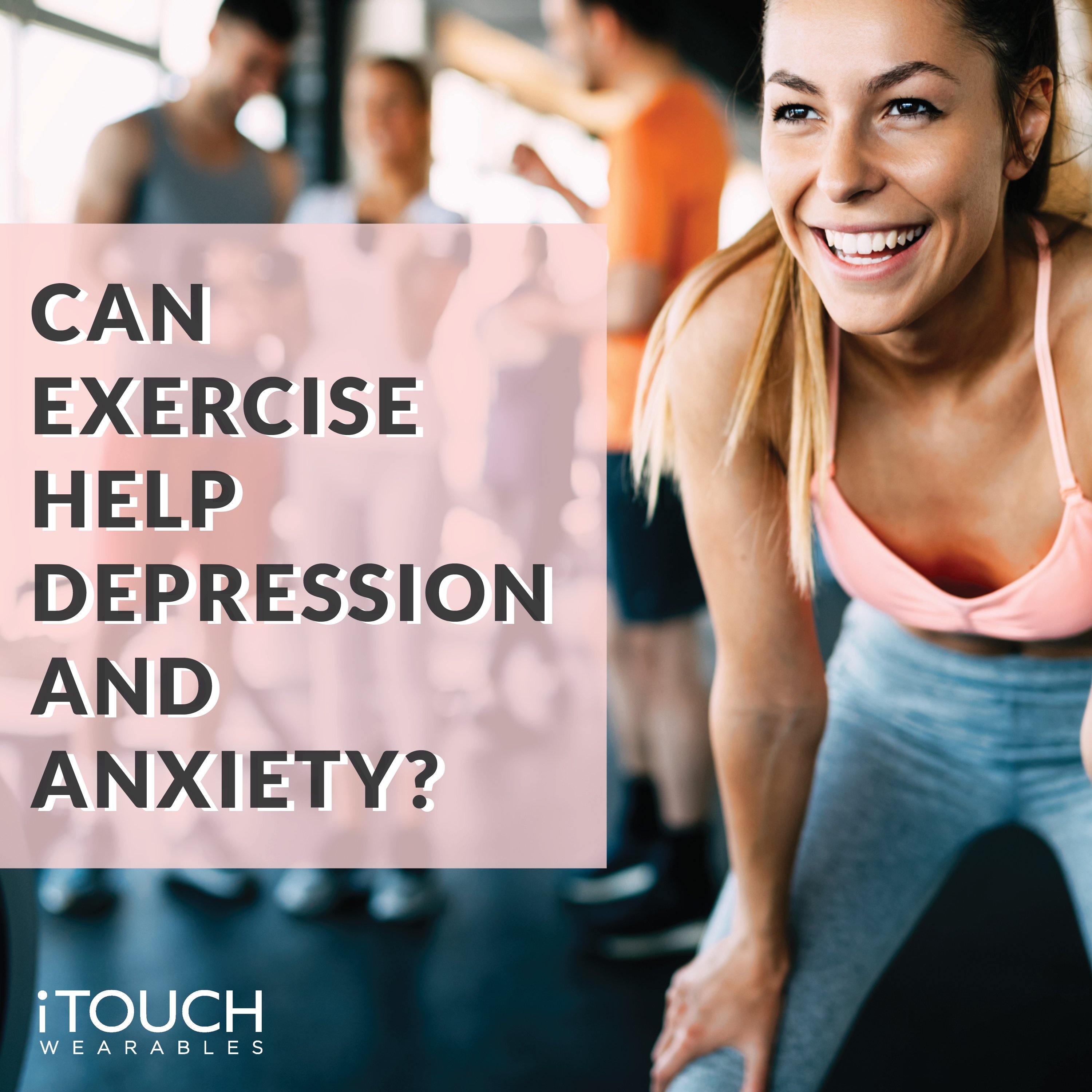
Can Exercise Help Depression and Anxiety?
My dear readers, as you know, I have been pretty open when it comes to my depression and anxiety. There definitely have been times where I didn't want to face the day - I would stay in bed, sleep, and try to just let the day go by without coming to terms with the word or reality. Even more so, I generally have felt quite unmotivated, stressed out, and uninspired, which at the end of the day, only feeds into my depression more. But I have a reason as to why I am mentioning this again: I have used yoga and meditation as a way to lessen my depression and anxiety. I found that practicing mindfulness while connecting with both my body and mind had a lot to offer in understanding exactly what my triggers are and how I can go about keeping them at bay.
As you know, exercise has been linked to a series of health benefits, including heart health, bone density, cancer prevention, and many others. Furthermore, while you are giving your body a much-needed boost, you will also be helping your brain, according to numerous studies. Many people feel a change in emotions like sadness, anxiety, indifference and anger during and just after a workout, but regular physical activity such as working out can benefit your mental health in a long-term way as well. That’s because when you lift your mood, it often leads to other healthy changes, like eating better, stressing less, and even getting more sleep. For me and many others, working out helps depression.
According to Dr. Rita Aouad, who specializes in psychiatry and sleep medicine at The Ohio State University Wexner Medical Center, "if you’re feeling anxious, it can have a ripple effect that increases your negative thoughts because you’re not sleeping well and not eating healthy foods, but that ripple effect goes both ways. When you start increasing healthy behaviors though one habit, like exercise, you often see other good habits begin to take hold.”
But if you are looking for a way to use exercise to maintain your mental health, look no further! We created the guide for you!
Chemical Reactions That Occur When Exercising

When you exercise, your brain sends off numerous chemical and biological reactions to your body - with perhaps the most important and largest one being the release of endorphins, which are known as the body’s “feel-good” chemicals. When endorphins are released, they activate certain receptors in your brain that work to reduce your perception of pain and increase a feeling of well-being. This notion, also commonly referred to as “runner’s high,” tends to switch on after you’ve been exercising for a short amount of time. At the same time, the activity releases proteins that cause nerve cells in the brain to grow and make new connections! This improvement in brain function also helps in making you feel better, according to Steven Hicks, PhD, of the Penn State College of Medicine.
However, it should be noted that the degree to which this happens can vary from person to person. According to Steven Hicks, this may even depend on how your genes operate! The bottom-line with this is to know that everyone has the ability to tap into this process. Everyone can use exercise to reduce anxiety and depression and help lighten their mood!
In further research, when these reactions are happening, they can reduce fatigue and improve alertness! This can especially be beneficial if your depressive symptoms or anxiety are caused by stress. With a better resistance to stress, your brain operates more efficiently - even more so when it comes to cognitive tasks and also physical ones like respiration, heart rate regulation, and immune system function!
What Exercise Can Do For You Belly - It Needs Some Love To!

The positive changes in your brain are important when you exercise, but there’s another vital area also getting some love: your belly. There’s increasing awareness that anxiety and depression may be linked to overall gut health. Researchers believe that this part of your body is so influential on your thoughts and emotions that it’s called your “second brain.” Even more, it is suggested that irritation in your gastrointestinal system may send signals to your central nervous system that could trigger mood changes.
What’s helpful in keeping you and your gut health on track? No surprise, it’s exercise. One study finds that cardio-respiratory fitness is correlated with increased diversity of good gut bacteria, while in comparison, other studies have shown exercise’s role in boosting serotonin, which is another “feel-good” chemical that is predominantly produced in the digestive tract.
Bottom-Line
Although exercise has an incredible range of benefits for physical, emotional and mental health, it’s not a cure-all when it comes to conditions like depression or anxiety disorders. Getting more physical activity can be very helpful, but if you still experience symptoms of depression, such as hopelessness, disinterest in activities that used to excite you, mood swings, sadness and persistent irritability, consider talking with a health professional.
Share with us your favorite exercises or workouts to do to battle anxiety and depression by tagging us on Instagram @itouchwearables and Facebook @itouchwearables. Also, be sure to check out our new articles published daily!
Don't forget to check out our collections of affordable smartwatches (including the iTouch Air 2), fitness trackers (such as the iFitness Pulse), and smartwatch accessories.
-Patrick


